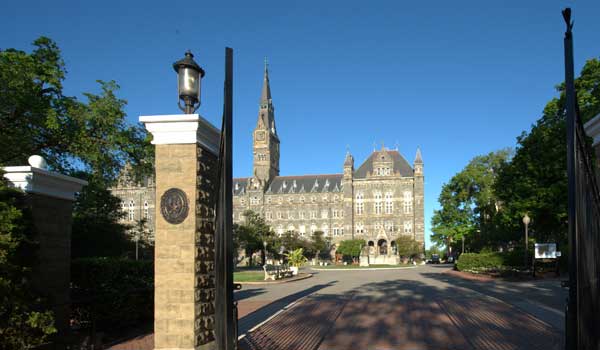Baseball Coach Resigns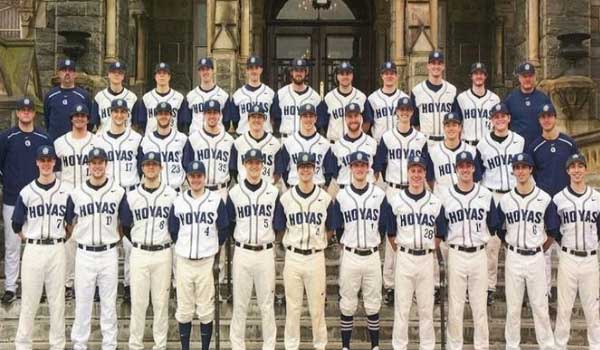
Pete Wilk, the dean of Georgetown's intercollegiate coaches with 21 years as Georgetown head baseball coach, resigned suddenly on Wednesday.Wilk, 55, joined the Georgetown staff as an assistant coach under Kirk Mason and was elevated to head coach after the 1999 season. His first win as head coach came Feb. 6, 2000 versus Duke, 5-3, but in his 21 seasons Georgetown never finished with a winning record, a continuation of a long streak dating to the 1986 season. Then as now, the lack of scholarship support, especially with pitching, doomed the Hoyas against deeper squads.The low point of Wilk's tenure came in 2009, when Georgetown University was placed on NCAA probation for three years due to what were determined as major violations by the baseball program. From 2001 to 2007, assistant coaches regularly approved work-study hours for members of the team without confirming work had been completed. Wilk was reprimanded but not dismissed; the assistant coaches in question had all left the program at that time. Georgetown never finished above 9th place in the 12 team Big East baseball setup through 2013. Since 2013, the conference contains just seven schools and Georgetown finished as high as fourth twice, going winless in two Big East tournament appearances. Wilk's latest team was 4-13 in non-conference play when the 2020 season was suspended following COVID-19 outbreaks nationwide. The longest serving baseball coach at Georgetown since former Washington Senator Joe Judge (1937-42, 1947-58), Pete Wilk's cumulative record was 426-668. There was no quote from Wilk or athletic director Lee Reed in a short press release issued on Wednesday. Closed For The Fall:
|
Recruiting In Uncharted Waters
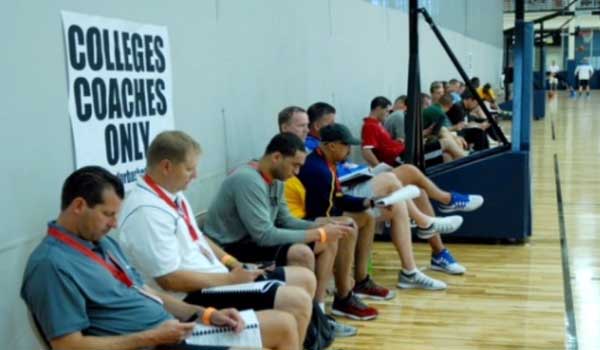
Patrick Ewing and the Georgetown staff are busy at work on recruits for the 2021-22 season, but in an environment where no one really knows what awaits them in 2020-21.
The verbal commitment Friday by 6-4 guard Jordan Riley is the first of as many as four open scholarships for 2021-22, not including the previous verbal commit from 6-1 Tyler Beard, who opted for prep school in lieu of coming to Georgetown in 2020. Aiden Curran at 247Sports.com notes a number of top prospects the Hoyas are competing with, seeking to sign its first Top 50 recruit since Jessie Govan (#42 in 2015)."The top needs for the Hoyas in 2021 are a point guard, a scoring wing, and center," Curran writes. "Until Patrick Ewing knows what he has in his incoming 2020 class, the point guard and wing positions will need to be a priority still."
But what if the season is cancelled? If previous NCAA rulings around 2020 spring sports are an indication, seniors on a cancelled sport will get an extra year of eligibility if they choose to use it. With degrees in hand, it's possible one or more of the two seniors (Blair, Pickett) or grad transfers (Harris, Bile) could opt to pursue a pro career at that point, or return for a fifth year, raising the risk of overrecruiting against a cap of 13 scholarships. But instead of playing what-if, college coaches are recruiting with the expectation of a 2020-21 season, but recruits are committing earlier than in prior years.
"So far, 62 players from the 2021 Rivals 150 have [already] committed," said Rivals.com analyst Eric Bossi. At the same time last year, only 28 from the class of 2020 had done so. For top-end players being chased by great programs that will wait on them, I don't really see why there is such a rush...so we have to factor in some kids seeing a pandemic, the uncertainty that it causes, and deciding to end things because they have a comfort level."
Among the top 50, there is still plenty of uncommitted players. Just 19 of the top 50 have a verbal commitment at this point.
Georgetown Lands First 2021 Commit
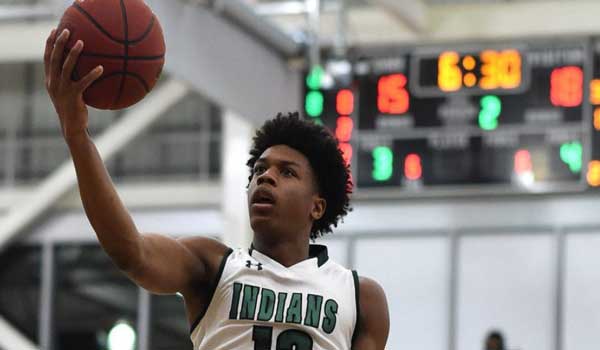
6-4 guard Jordan Riley is the first signee for Georgetown's 2020-21 recruiting cycle.
Riley, a rising senior at Brentwood HS in Brentwood, NY, averaged 23 points and 12 rebounds as a junior, and is ranked #136 nationally. He chose Georgetown over offers from St. John's, Connecticut, Kansas, and Florida State.
He cited coaches Patrick Ewing and Louis Orr for his decision, noting their prior NBA experience. Also to Georgetown's advantage: Riley was able to visit the University prior to the COVID-19 lockdown in March.
According to the New York Post, a source reported "Riley was sold by the idea he would have a starring role immediately at Georgetown" and that St. John's already had an incoming guard this season scheduled to start.
Recruiting for 2021 remains underway even as uncertainty continues to grow regarding the 2020-21 season. Georgetown has two seniors and two fifth year grad transfers scheduled to graduate after the 2020-21 season.
James C. Frisby (1935-2020)
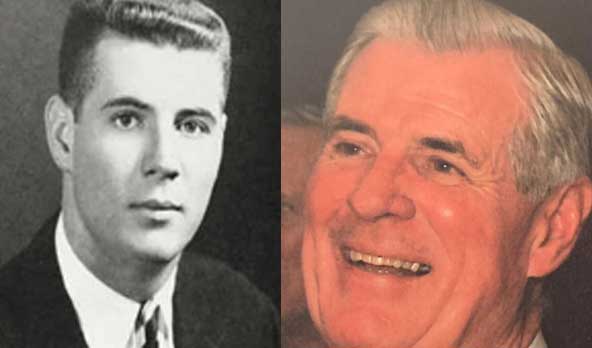
From the Press of Atlantic City, news this week on the passing of Jim Frisby (C'56), a guard from the 1953-54 Georgetown varsity.
Frisby grew up in Georgetown at 30th and R Street, attending Gonzaga College High School. At Georgetown, he was a reserve guard for the basketball team as a sophomore and was called into the regular lineup following the season-ending injury of Lou Gigante during the 1953-54 season. Frisby played in 11 of his 16 games that season after Gigante's injury, averaging 1.7 points per game, and joined the baseball team thereafter, playing two seasons at second base.Following college, Frisby served in the U.S. Navy and enjoyed a long career as a real estate appraiser in the Philadelphia area. He is survived by his wife of 65 years, two children, and five grandchildren.
Georgetown Signs Third Grad Transfer
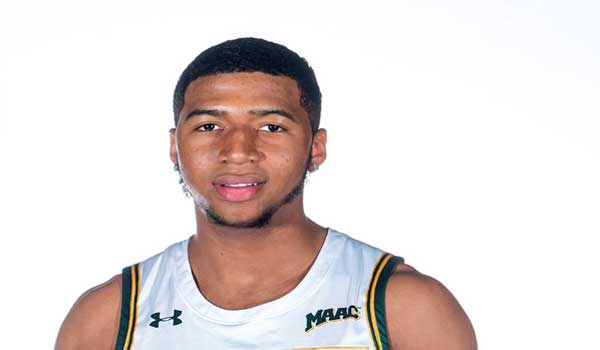
Following the loss of guard Tyler Beard to prep school, Georgetown completed its 2019-20 recruiting with the addition of 6-5 guard Donald Carey from Upper Marlboro, MD.
Carey played at Frederick Douglass HS in Prince Georges County in the spring of 2017, averaging 13 points a game as a senior. He was signed by coach Jamion Christian to go to Mt. St. Mary's in 2017-18, averaging 9.0 points as a freshman, then followed Christian when he became Siena coach in 2018-19. Carey sat out the 2018-19 season per NCAA transfer recommendations, then stayed at Siena when Christian left for George Washington.While playing for the Saints, Carey averaged 11.3 points a game in 28 starts. Carey graduated Siena in three years and notified the school he would not be continuing as a graduate student, leading some to think he would reunite with Christian at George Washington, but GW had no open scholarships. Carey has two years eligibility remaining.
"When I got the job, we talked about letting him take extra courses to graduate," Siena coach Carmen Maciariello told the Albany Times-Union last week. "Don wanted to graduate early and I appreciate the year he played for us helping us win a regular-season MAAC title and we wish him the best moving forward. It's always an option for guys to graduate. Obviously, Don came to Siena for the previous coach and he sat out a year and I said, 'Hey, I know you didn't come here to play for me.' I thought he did a great job for us and helped us win the league."
Coach Ewing Opts For Cameo
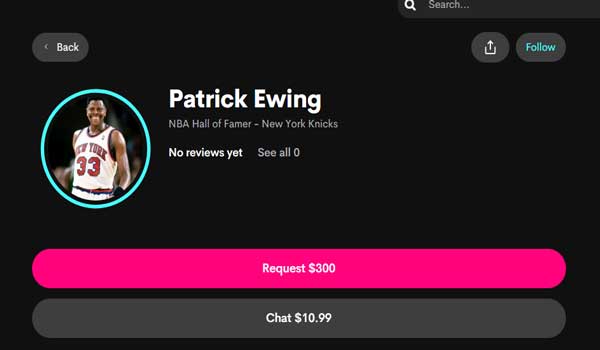
Interested in birthday wishes from head coach Patrick Ewing? The coach and NBA Hall of Famer is available for $300 as part of a popular celebrity app.
Ewing has signed up for the Cameo service, a platform where fans pay celebrities (and some decidedly not so famous people) to record a personalized 1-2 minute video wishing someone a happy birthday or just to say hello, produced and delivered on a cell phone. Popular among comedians, reality television stars and former wrestlers, the app has now drawn interest from a large numbers of athletes and sports personalities, offering fans the ability to get a message ranging from former Redskins radio announcer Larry Michael ($25) to golfer John Daly ($750).Political figures are also a growth market, such as those interested in a greeting by former White House officials Anthony Scaramucci ($65), Corey Lewandowski ($70), or the recently commuted Roger Stone ($75, listed as "temporarily unavailable").
At the top of the sports price list is boxer Floyd Mayweather, who boasted to TMZ that he wants "to be the first celebrity to make a million dollars on Cameo," charging $999 a video.
Ewing's link is available at www.cameo.com/patrickewing.
John Thompson Autobiography Set For January Release
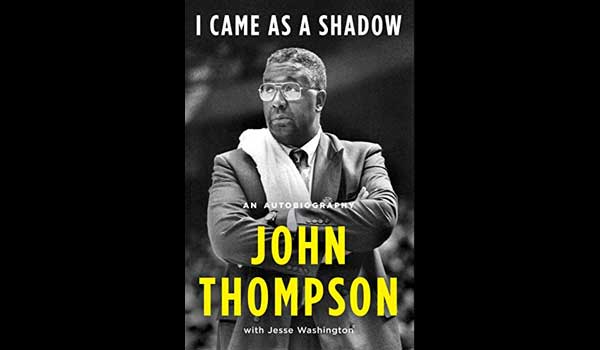
The much anticipated autobiography of former Georgetown coach John Thompson has been placed for pre-order on Amazon.com.
Thompson has has passed on biography proposals in the past. The closest attempt at a biography came by Washington Post editor Leonard Shapiro three decades ago, but his 1991 book "Big Man On Campus" failed to land much in the way of detail on the man himself. Instead, Thompson's story will be told the way Thompson saw it, collaborating with Jesse Washington, a writer for ESPN's "The Undefeated", in the final product."After years of being asked to write his autobiography, Thompson has found his voice in silent reflection," wrote the Washington Post in 2019. "At 77, he marvels at how differently, how completely, he sees the world. He presented strong views at a young age, and he doesn't back down from anything he did, whether it was protesting the NCAA's Proposition 42, which tightened academic requirements for scholarship athletes, or otherwise. But he has continued to grow, continued to learn, continued to fight and speak up and strategically shut up. Now, he's willing to share it all."
The 352 page book, titled "I Came As A Shadow", debuts January 26.
Charles M. Harrison Jr. (1972-2020)
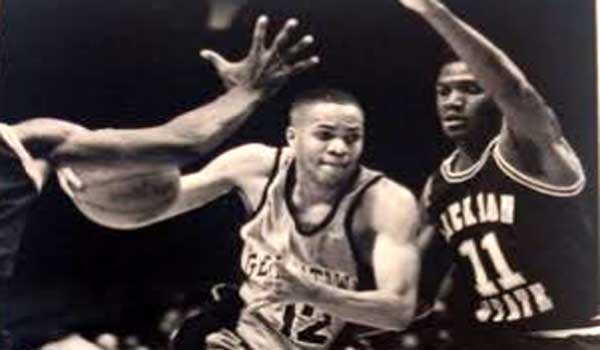
Numerous social media posts Wednesday noted the passing of Charles Harrison, 47, who played at Georgetown from 1990 through 1992.
A brief bio on Harrison follows from the Georgetown Basketball History Project: "An All-Met guard out of Archbishop Carroll HS averaging 26 points a game, Harrison started all 32 games as a Georgetown freshman, finishing second on the team in scoring behind Alonzo Mourning and ahead of Dikembe Mutombo. Harrison was named to the Big East all-rookie team with an 11.7 points per game and a season high 20 versus Connecticut.His sophomore year looked even more promising, opening with 29 in the season opener in Hawaii, 16 against Providence, and 17 to Syracuse on Jan. 15, 1992. Two days later, Georgetown announced he was transferring.
The cause of Harrison's abrupt transfer was a running story until he enrolled at Wake Forest at month's end. Family relatives told the Washington Post suggested that Harrison could not get along with coach John Thompson, but Harrison refuted the claims. "Every coach yells," he told the Post. "My grandmother didn't know the situation. She meant well. She thought she was taking up for me."
Harrison refused comment on the reason but the timing of the Syracuse game - the last game before the start of second semester classes. Wake Forest coach Dave Odom said that Harrison needed time "to catch up academically" before joining the team. In response, Harrison's father, Charles Sr. told the Post "He didn't have academic problems, or else he wouldn't be at Wake Forest, would he?"
Harrison averaged 7.5 points per game in two seasons at Wake Forest."
Harrison was a lifelong resident of Washington. Outside of work, he co-hosted the "Red Cup Hour", a weekly video show on Facebook interviewing former local basketball legends.
A cause of death has not been disclosed. Services are pending.
Inside The "Locker Room"
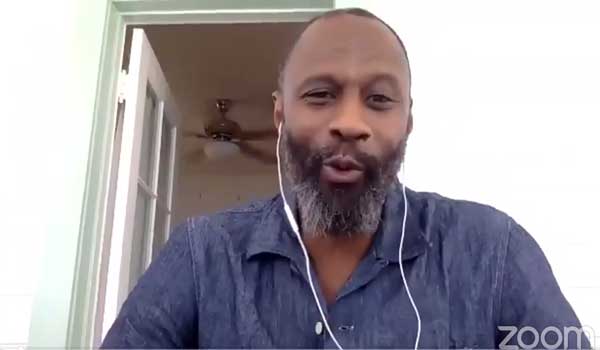
In an unusually quiet summer for men's basketball, a pair of alumni podcasts have opened a door few fans get to hear; namely, the view from the players themselves.
Since Georgetown's deflating loss to St. John's in the Big East tournament (its third loss to the Redmen in four opening games), the Georgetown web site has been quiet, posting just two stories (Mac McClung's transfer and Patrick Ewing's statement on COVID-19) since March. The podcasts have kept interest up, however. Dawg Talk (featured here last month) is a series of conversations with Chris Wright (C'11) and Austin Freeman (C'11), usually with teammates of that era, with this week's guests being Henry Sims (C'12) and Jason Clark (C'12).A different take follows at Hoya Locker Room, where host Gene Smith (C'84) has spanned guests from different eras, most recently Tyler Adams (C'15) and Jabril Trawick (C'15), discussing basketball, society, and where Georgetown intersects across both. Like Dawg Talk, the comments are frank and aren't entirely complimentary of their eras, but provide an interesting view to the program that was locked away from fans and the press for many years.
As the podcasts continues, the selection of guests could expand outside the 2000's. A talk with former DeMatha standouts Mark Edwards (B'73) and Don Willis (C'74) could be one possibility, or any of the alumni that came up through the St. Anthony's HS pipeline from 1972 through 1985. But in an uncertain era where the next basketball game could be a few months or a few years away, it's a good listen for both.
Hoya Locker Room Alert ??looking forward to conversation with @JT55iVe & @TylerAdams0 leaders of some really good Hoya teams ‘13 1st in BE 15’2nd in BE Tune in @soulhoyas @dawgtalk101 @GeorgetownHoops @BigEastTourney @HoyaHoopClub @GUAlumni pic.twitter.com/z4FaiKilUB
— HoyaLockerRoom (@RoomHoya) July 12, 2020
Sports Illustrated 2020-21 Rankings
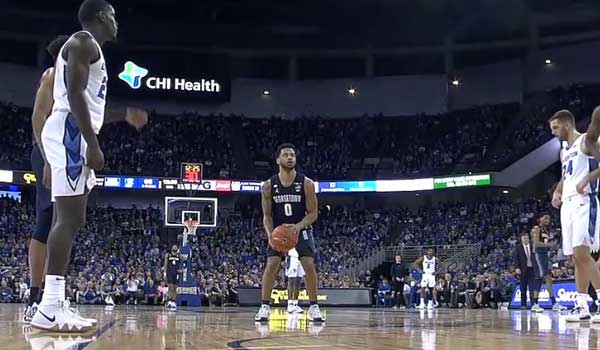
Sports Illustrated's 2020-21 Big East summer preview gives little thought to Georgetown's rebuilding effort, picking Georgetown alongside DePaul in the conference basement.
SI's Picks:
-
1. Villanova
2. Creighton
3. Seton Hall
4. Connecticut
5. Xavier
6. Providence
7. Marquette
8. Butler
9. St. John's
10. Georgetown
11. DePaul
"Players such as Jahvon Blair and Jamorko Pickett stepped up down the stretch last season, while rising sophomore big man Qudus Wahab has shown potential. Georgetown tied for eighth in the Big East last season with a 5-13 conference record, and 2020-21 may bring more of the same, with hope for growth and consistency within the roster."
Kenner League Cancels 2020 Season
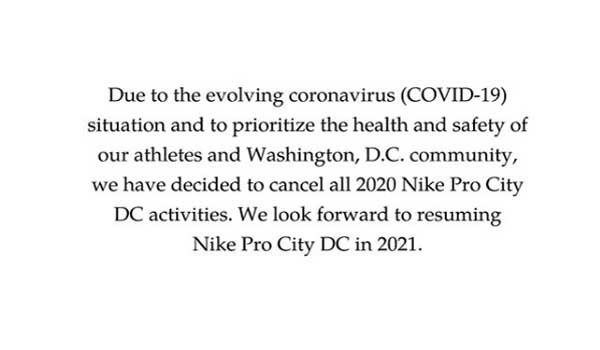
Officials at the Kenner League announced it would not hold its 2020 summer league.
The Instagram post was a fait accompli given local restrictions on indoor events and the fact that Georgetown is not sponsoring on-campus progams this summer. It is expected that the games will return for its 40th season in 2021.Georgetown Issues Fall 2020 Announcement
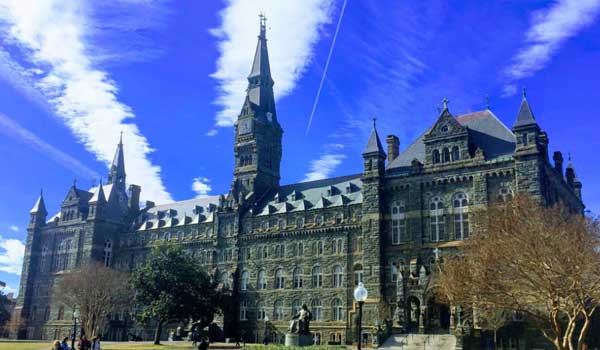
A decision on fall attendance at the University was announced late Monday.
On-campus living will be offered to the following:- Members of the freshman class, approximately. 1,500.
- Students with a "personal or family situation" that requires them to be on-campus;
- A limited number of seniors and those whose "academic program necessitate an on-campus presence"; and
- A limited number of resident assistants
Please review the link in the upper right for the entire document. Here's a summary of what's going at other local universities:
Ewing Interview: Thompson Hospitalized
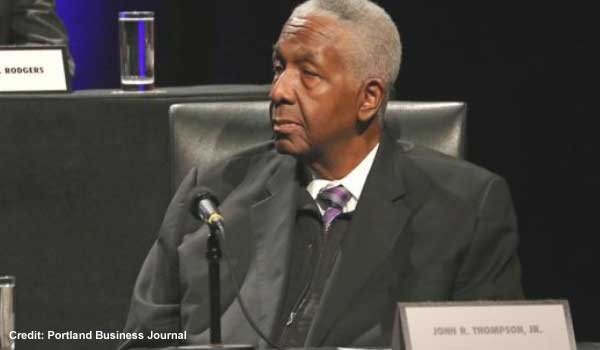
During the midst of an interview with WTEM Sports about his COVID-19 recovery, head coach Patrick Ewing disclosed that former coach John Thompson is in a local hospital.
When asked if he had to isolate himself from "the Big Hoya" [Thompson] during his recovery, Ewing told the "Doc and Galdi" show. "Everyone was restricted...of course, you know, Coach, he's still in the hospital, he's doing a lot better, you know, we wish him nothing but a speedy recovery." A cause for the hospitalization was not discussed.Thompson was hospitalized late last year but returned to his seat at Capital One Arena during the second half of the 2019-20 season.
In other questions, Ewing noted he was "disappointed" in the transfer of Mac McClung last month. "I believe we gave him the opportunity to showcase his ability."
Ewing also took a question when Doc Walker asked about "General Manager Thompson", an awkward reference to Ron Thompson (C'92), who remains closely involved with the program even as Georgetown does not publicly discuss his role within the basketball office.
UConn Returns To The Big East
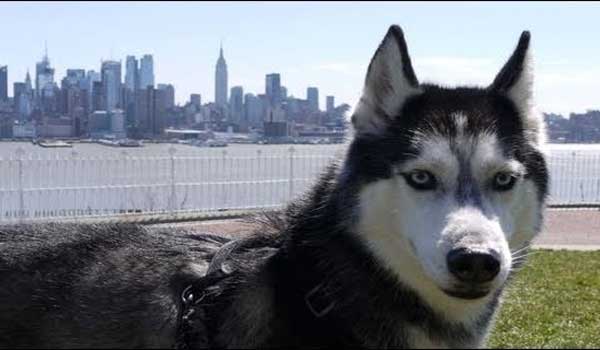
After a seven year absence, the University of Connecticut's has returned to the Big East Conference, effective July 1.
The Huskies will compete in 22 of its 24 sports in the Big East in the 2020-21 academic year, minus football and women's ice hockey. That number drops to 18 Big East sports in 2021-22 after the school cut four sports last week to address a $42 million athletic deficit, one which its membership in the American Athletic Conference (AAC) was unable to mend. According to the Orlando Sentinel , UConn received less from the AAC in TV payments from the conference in 2020 than any other AAC football member, just $1.08 million, compared to nearly $7.5 million at Central Florida.The Big East holds many fond memories for Connecticut fans.
Under former coach Jim Calhoun, UConn men's basketball soared in the 1990's. The Huskies won seven conference titles in a 23 year period and three NCAA titles, with a fourth national championship coming the year after UConn was part of the AAC. Its last NCAA appearance was in 2016 but its fan base expects a rapid return to glory in its old conference home.
UConn is all but expected to return to its place at the top of the Big East for women's basketball. The Huskies won 18 Big East tournament titles and eight national championships under current coach Geno Auriemma between 1989 and 2013, and added three more NCAA titles while in the AAC. The Huskies were 29-3 in 2019-20 before the shutdown of the women's NCAA tournament.
"People can't wait for the season to start," men's basketball coach Dan Hurley told the New York Post. "Really, it's like the perfect storm for us. We're making great progress, and we're back in a league our fans can identify with and be excited about the matchups. If there's no fans allowed at the games, then they may break down the doors."
The Connecticut fan base, the largest in the Big East prior to the 2013 split, will make its presence felt at the next men's tournament at Madison Square Garden. Husky fans were nonplussed with AAC tournaments in locations such as Orlando and Memphis, and with 80 percent of its fan base within a two hour train ride to Penn Station, the ubiquitous spell outs of "U-C-O-N-N! UConn! UConn! UConn!" will be heard in Manhattan once again.
